Five reasons why Google's Web apps store makes sense

Yesterday, Google announced that, later this year, it will release the Chrome Web Store. The idea isn't complex and philosophically compliments the app store for Google Docs and even Android Marketplace: Provide a marketplace for third-party apps. The strategy is sensible for Google, given its heavy orientation around the browser and cloud services.
Early last month I explained how Apple and Google are battling for the future of the mobile Web. Both companies are looking to capitalize on the shift from the PC client-server applications stack to the mobile device and cloud service stack. Apple's approach makes the mobile app primary, pushing up to the cloud, while Google pushes services down from cloud to device, mainly the browser. Already, Apple has built a huge application and developer ecosystem around App Store. Google needs to counter, but leveraging its cloud services strengths.
Research in Motion surges to No. 4 in global mobile phone sales, Apple to No. 7

Today, Gartner released first quarter 2010 worldwide mobile phone sales data, and it's the set that matters. Unlike IDC or manufacturers like Apple, Gartner tracks actual sales to users rather than shipments to carriers or retailers. Shipment data is less accurate, because of unsold inventory in the channel. Based on sales, Apple ranked No. 7 in worldwide mobile handset sales, just behind sagging Motorola. That's for all phones, not just smartphones.
For smartphones, Android and iPhone OS made huge gains, with Gartner describing them as the "winners" for the quarter. Android rose from 575,300 unit sales to 5.2 million year over year, pushing Windows Mobile down into the fifth position. Because there already is a fair amount of misreporting, such as Apple pushing ahead of Motorola, I will continue the main portion of this post with some quick -- and in some instances -- corrective facts:
Would you like a mSpot music streaming private beta invite?

Betanews has 500 of them. One could be yours.
The mSpot private beta opened today. The concept is simple: Your music available, anytime, anywhere on anything. The streaming service initially offers clients for Mac, PC and Android 2.1 phones, so mSpot is still working on the anywhere. Perhaps that's good reason for the private beta.
Bogus is one way to describe Microsoft's patent claims against Salesforce.com
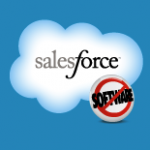
Three words sum up Microsoft's patent infringement suit against Salesforce.com: Competition by litigation. Microsoft knows plenty about competition by litigation, having been its victim through major antitrust cases on two continents. It's simply shameful action from a company which executies rightly wagged accusing fingers at litigating competitors over the years. Microsoft's "do unto them like they did unto us" approach cheapens the company. The proof is in the patents, which are hugely broad scope.
Qualifying that I am no patent attorney, I have applied layman's eyes to the patents that Microsoft alleges Salesforce.com violates. The nine patents read to me as being very broad in scope and potentially applicable to many forms of end user to computer or Web browser interactions -- or none at all. If any of these patents are enforceable, the US patent system really does need some reform.
iPad isn't for everyone, so deal with it

Thirty-two days ago, I purchased Apple's iPad, after proclaiming that I wouldn't. A gadget like this one should be tested if repeatedly blogged about. I would have used a for-reviews loaner, but I'm on the same fraked list as Gizmodo. I bought my own. A month-or-so usage later, I agree with Tumblr and Instapaper developer Marco Arment, who asked about iPad yesterday: "What's it for, really? Logically, it doesn't make a lot of sense for most computer owners...most people will have trouble justifying the $500 entry price."
My problem is similar to Arment's: I like the iPad, but can't find a use for it. The tablet is too big to replace a cell phone and it's not functional enough to displace my laptop (singletasking is one of the major reasons for that). I would never buy the butt-ugly Amazon Kindle or slow-as-cold-molasses Barnes and Noble Nook, yet I find iPad to be a so-so satisfactory substitute e-book reader. I managed to reread Orson Scott Card's excellent Ender's Game and am trudging through sequel Speaker for the Dead. But it's reading for convenience, not joy.
If you think Facebook privacy is so bad, the open Web is worse
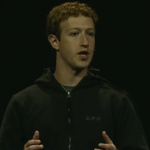
It seems like anyone who wants to be anybody is whacking Facebook over its loose -- or rather loosening -- privacy policies. Earlier this month, with disregard to the grammer momma taught me, I asked: "Which is Eviler? Apple, Facebook or Google?" Even I whacked CEO Mark Zuckerberg aside the head about Facebook privacy. As bad as pundits make out Facebook privacy to be, people can, and do, reveal plenty of information on the Web, too. Which place do they reveal more? I set out to find out in a non-scientific experiment, looking for publicly available information about one of my sisters.
I got to rethinking Facebook privacy over the weekend, after reading New York Times post "World's Largest Social Network: The Open Web" by Randall Stross. "The links on the trillion Web addresses found by Google, and within the billions of Tweets that have followed, form an incomparably vast, truly worldwide, web of recommendations, supplied by fellow humans," Stross writes. "In this sense, the open Web has a strong claim to being more 'social' than does Facebook."
10 things you should know about the unsealed Apple-Gizmodo court documents

Big news yesterday: A judge unsealed lots of juicy court documents related to Apple's lost smartphone, what Gizmodo calls the "next iPhone." Since seemingly every blog or news site on the planet covered the unsealing while I was out sick yesterday, I am writing a lighter, top-10 followup today.
But first the news-heavy recap: An Apple employee lost the iPhone prototype in mid-March, while celebrating his birthday. The finder later sold the device to Gizmodo, reportedly for $5,000, although the unsealed court documents list the sum as $8,500 with promise of a possible bonus later on. Gizmodo published a series of stories, with photos and videos, starting on April 19. On April 23, San Mateo police officers raided the home of Gizmodo editor Jason Chen. Court documents refer to him as "suspect Chen."
Creative Suite 5 Student and Teacher Edition licensing-key scheme deserves a failing grade

Today, I received Amazon e-mail about a one-day sale on Adobe Photoshop Elements 8 -- hey, just $54.99 before a $20 mail-in rebate. What's not to like about that? The landing page listed something else: "Adobe Photoshop Extended CS5 Student and Teacher Edition," which releases on May 25. Whoa, could this be like Microsoft Office Home and Student Edition, with multiple licenses and availability to anyone with enough gumption to claim they're a student of life? Hardly. Adobe's license-key terms are so onerous, I predict there will be higher-than-normal attempted returns of this edition.
But first a history lesson: Microsoft pulled something of a retail coup in autumn 2001 with the $149 Office XP edition for students and teachers. The edition let Microsoft drop the price for consumers without risking business version revenues. What success! As I wrote for CNET News.com in August 2001: "Retailers have sold 300,000 copies of the academic version of Office XP since October, taking in about $43 million in revenue, according to NPDTechworld. By comparison, the full standard version has racked up 121,000 retail sales and the standard upgrade version has sold 100,000 since Office XP's release in May 2001." Something else: Microsoft didn't card buyers at the door so to speak. No one checked (wink, wink) that buyers were students (wink, wink).
Adobe to Steve Jobs: 'We love you'

Yeah, but will Apple's CEO love Adobe back?
The Adobe-Apple breakup has taken on strange tabloid-like qualities over the last 30 days or so. Quick someone call in the paparazzi, but first ask if they'll be editing those photos in Adobe Photoshop, Photoshop Lightroom or Apple Aperture. Today, Adobe cofounders Chuck Geschke and John Warnock responded to Jobs' Aptil 29 "Thoughts on Flash" memo with their own: "Our thoughts on open markets." Adobe is supporting the memo with a marketing campaign -- "We love Apple" ads and "Freedom of Choice" Website." Adobe's response is measured and embracing, subtly placing the blame for the breakup on Apple. In the court of public and developer opinion -- perhaps shareholders in both companies -- Adobe may prove the venerable of the two parties here.
Usability expert faults iPad user interface, calls it "whacky"

I have lots of gripes about the iPad user experience. Apple describes the iPad as "magical." I find it "frustrating." Usability expert Jakob Nielsen explains why, indirectly answering the question I asked last month: "Is iPad just a proof of concept?" In a post with two dates -- April 26 and, today, May 10 (from the homepage) -- he explains in summary: "iPad apps are inconsistent and have low feature discoverability, with frequent user errors due to accidental gestures. An overly strong print metaphor and weird interaction styles cause further usability problems."
Haha, with all the fuss about Apple being too strict about approving applications, maybe with iPad more strictness is needed to ensure usability. Or perhaps the problems are less the apps but fundamental weaknesses to Apple's iPad UI approach, some of which may be there for business reasons. Apple CEO has pitched iPad as the savior of print media, and big publishers have signed on for the ride. However, in Nielsen's UI studies, the out-dated print motif approach is one of iPad's biggest usability shortcomings.
Like I said, iPhone can't win the smartphone wars
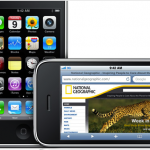
Normally, I hate to say "I told yo so." But Macheads whacked me so hard for last October's "iPhone can't win the smartphone wars," I simply can't resist gloating. According to NPD, during the first three months of 2010, as measured by smartphone operating system unit shipments, Android outsold iPhone -- 28 percent to 21 percent market share. BlackBerry OS had 36 percent share. The data is for the United States only.
Android has gotten a big US boost over the last seven months or so. Late 2009, Verizon launched the Droid, putting up $100 million in marketing. Apple isn't the only company that knows how to successfully sell gadgets. Some of that Verizon marketing attacked AT&T network reliability -- and quite effectively. Meanwhile, Android handset distribution increased from one to all four major carriers, while iPhone is confined to AT&T.
Microsoft pays for enthusiasts Apple gets for free
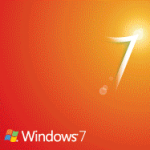
Microsoft is hawking partner wares through Windows Team Blog posts. My inclination is to praise -- and I will -- but I can't resist a little a little jab, too. A decade ago there were just a handful of Apple blogs or fan sites, like MacCentral and ThinkSecret, now there are bazillions covering every scrap of Apple news or rumor. Where are the Microsoft enthusiasts? Must they be employee bloggers selling new Windows PCs?
This morning, not one, but two, Windows Team Blog posts caught my attention -- it's more when counting duplicates, but let's not go there (both posted yesterday). The first: "From Us With Love" by Ashley Brown and "Hands on with today's offer PC -- the Sony VAIO E Series" by Ben Randolph. Brown writes about three deals and Randolph what you can do with one of them. The emphasis in both is the same: "Our offers." Randolph's post reads like the kind of first-hand, enthusiast account that might pop up on an independent blog or in a comment or forum. The posts are part of a series highlighting Microsoft partner products. None of this is super new; I finally decided to blog it today.
Apple smartphone shipments grow 132%, Motorola rebounds

Worldwide in first quarter, smartphone manufacturers shipped 54.7 million units, growing 56.7 percent year over year, according to IDC. Apple surged strongest -- 131.6 percent. While seemingly good, Apple needs to look back at approaching HTC and Motorola. Motorola is making a big comeback, and by way of smartphones; shipments grew 91.7 percent year over year. Motorola is betting big on iPhone OS rival Android. IDC noted that Motorola is expected to launch 20 new handset models during 2010, shipping an estimated 12-14 million Android smartphones.
About 27 percent of Motorola's total handset shipments were smartphones, which was higher than the market average of 18.8 percent, up from 14.4 percent a year earlier. Apple ships 100 percent smartphones.
Which is eviler? Apple, Facebook or Google?

Three monopolies. All vying to be the next Microsoft. Will one of them succeed, and will it cost you dearly?
Today, I officially announce the end of the Wintel hegemony. Like IBM before it -- heck, even the Roman Empire starting about 19 centuries ago -- Wintel will continue to dominate huge swaths of the technology industry, while rapidly declining in relevance. Perhaps duopolies Microsoft and Intel will make a last rally, maybe by changing leadership, and hold out longer against the advancing mobile-to-cloud hordes. Rome's decline was long, so could be Wintel's.
Is Microsoft KIN stud or dud?
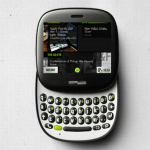
Will you buy Microsoft KIN? That's my question for Betanews readers on this fine hump day of the week. Will you or perhaps someone in your family purchase KIN? The Microsoft smartphone -- in KIN ONE and KIN TWO versions -- goes on sale tomorrow through Verizon Wireless. I took the "KIN is good for teenagers" stance last month. Today, here at Betanews, Tim Conneally asserts "KIN is not just for teenagers." So there's another question for you: Who is KIN for?
Pricing isn't exactly tween budget friendly, since the lowest pricing -- $49.99 for KIN ONE, $99.99 for KIN TWO -- is only obtainable by $100 mail-in rebate, which comes as a debit card. That means the kiddies will pay 150 or 200 bucks out of pocket. Then there are the data fees -- $29.95 a month, which doesn't include texting (that costs 20 bucks more). Verizon's pricing is more like AT&T's for iPhone -- separate data and text -- but without the benefits.
Joe's Bio
Joe Wilcox is BetaNews executive editor. His motto: Change the rules. Joe is a former CNET News staff writer, JupiterResearch senior analyst, and Ziff Davis Enterprise Microsoft Watch editor.
Ethics StatementBetaNews, your source for breaking tech news, reviews, and in-depth reporting since 1998.
© 1998-2025 BetaNews, Inc. All Rights Reserved. About Us - Privacy Policy - Cookie Policy - Sitemap.
